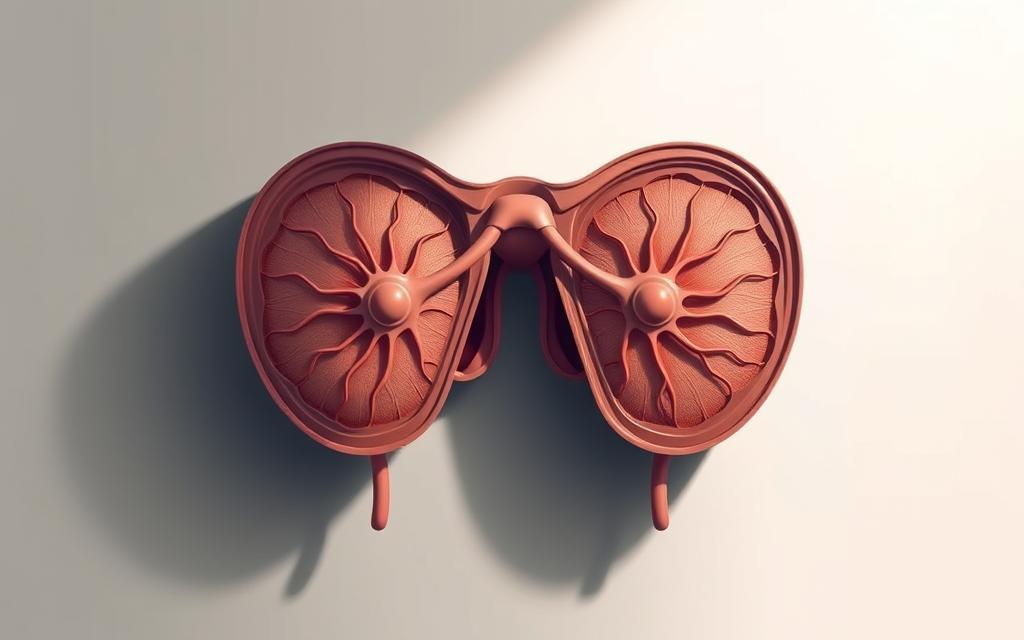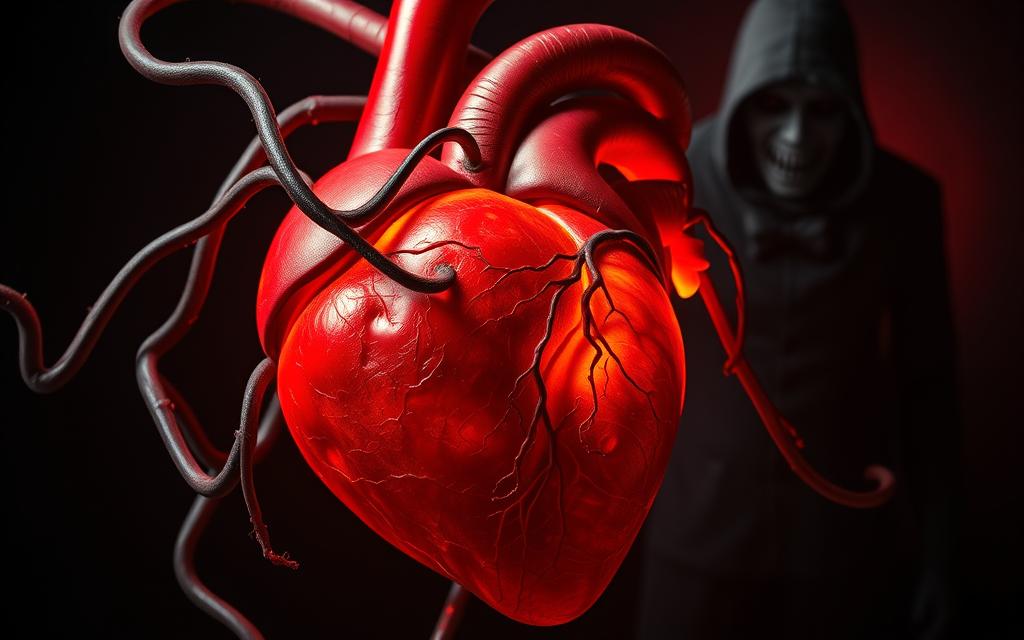High Blood Pressure and Erectile Dysfunction: How Low Testosterone Plays a Role
High blood pressure and erectile dysfunction are two health issues that can be closely linked. Research has shown that men with high blood pressure are more likely to experience erectile dysfunction. One key factor that contributes to this connection is low testosterone.
Low testosterone, or hypogonadism, can affect a man’s sexual health and overall well-being. It can lead to decreased libido and erectile dysfunction. Moreover, high blood pressure can damage blood vessels, further complicating the situation.
Understanding the relationship between high blood pressure, low testosterone, and erectile dysfunction is crucial for managing these conditions effectively. Testosterone therapy may be an option for some men, offering a potential solution to improve their quality of life.
The Connection Between High Blood Pressure and Erectile Dysfunction
The relationship between hypertension and erectile dysfunction is complex and multifaceted, involving various physiological and psychological factors. High blood pressure can significantly impact erectile function by affecting the blood vessels and the nervous system.
How Hypertension Affects Blood Flow
Hypertension damages the inner lining of blood vessels, making them less responsive to the signals that normally cause an erection. Poor blood flow is a direct consequence of this damage, leading to erectile dysfunction. Furthermore, hypertension can cause atherosclerosis, a condition where plaque builds up in the arteries, further restricting blood flow.
Statistics on Hypertension and ED Correlation
Studies have shown a significant correlation between hypertension and erectile dysfunction. For instance, men with hypertension are nearly twice as likely to experience erectile dysfunction compared to those without high blood pressure. According to the American Heart Association, approximately 1 in 3 adults in the United States has hypertension, and a substantial portion of these individuals may also experience erectile dysfunction.
Understanding the link between these two conditions can help in managing and potentially treating erectile dysfunction in men with hypertension.
Understanding Testosterone’s Function in Male Health
Testosterone plays a crucial role in men’s health, influencing a range of physiological processes. It is a hormone that is key to the development of male reproductive tissues, promoting characteristics such as muscle mass, bone density, and facial hair.
Normal Testosterone Levels and Their Importance
Normal testosterone levels typically range from 300 to 1,000 nanograms per deciliter (ng/dL), though this can vary by age and individual health. Maintaining levels within this range is important for overall health, as testosterone influences energy, libido, and bone health. Low levels can lead to various health issues, including decreased muscle mass and reduced sexual function.
Some key aspects influenced by normal testosterone levels include:
- Muscle strength and mass
- Bone density
- Libido and sexual function
- Red blood cell production
Signs and Symptoms of Low Testosterone
Low testosterone, or hypogonadism, can manifest through various symptoms, including fatigue, decreased libido, erectile dysfunction, and loss of muscle mass. Other signs may include mood changes, such as depression or irritability, and physical changes like increased body fat or reduced bone density.

Recognizing these symptoms is crucial for seeking appropriate medical evaluation and treatment. Men experiencing several of these symptoms should consult a healthcare provider for proper diagnosis and care.
How Low Testosterone Contributes to Erectile Dysfunction
Testosterone plays a crucial role in male sexual health, and its deficiency can lead to erectile dysfunction. Erectile dysfunction (ED) is a condition where a man is unable to achieve or maintain an erection sufficient for satisfactory sexual performance. Low testosterone, or hypogonadism, can significantly contribute to the development of ED.
The Physiological Mechanism
The physiological mechanism behind low testosterone contributing to ED involves several key factors. Testosterone is essential for the regulation of nitric oxide synthase, an enzyme critical for the production of nitric oxide, which in turn facilitates the relaxation of smooth muscle in the corpus cavernosum, enabling erection. When testosterone levels are low, this process can be impaired, leading to difficulties in achieving or maintaining an erection.
Research Findings on Testosterone and Sexual Function
Research has shown a significant correlation between testosterone levels and sexual function in men. Studies have indicated that men with low testosterone levels are more likely to experience erectile dysfunction. For instance, a study published in the Journal of Clinical Endocrinology and Metabolism found that testosterone therapy improved erectile function in men with hypogonadism.
| Testosterone Level | Erectile Function Improvement | Study Findings |
|---|---|---|
| Low Testosterone | Significant Improvement | Testosterone therapy improved erectile function |
| Normal Testosterone | Minimal Improvement | No significant change with testosterone therapy |
Understanding the relationship between testosterone and erectile dysfunction is crucial for developing effective treatment plans. By addressing low testosterone, healthcare providers can potentially improve erectile function in affected men.
The Relationship Between Hypertension and Low Testosterone
Understanding the relationship between hypertension and low testosterone is crucial for addressing the complex health needs of men. Both conditions are prevalent among aging men and can significantly impact quality of life.
Hypertension, or high blood pressure, is a condition that can lead to serious cardiovascular issues if not managed properly. Low testosterone, on the other hand, can affect a man’s energy levels, libido, and overall well-being. Recent studies have highlighted a significant correlation between the two conditions, suggesting that men with hypertension are more likely to have low testosterone levels.
Common Causes and Risk Factors
Several common causes and risk factors contribute to both hypertension and low testosterone. These include:
- Obesity: Being overweight is a significant risk factor for both conditions.
- Smoking: Smoking can damage blood vessels, contributing to hypertension.
- Lack of Physical Activity: Sedentary lifestyles can lead to weight gain and increased blood pressure.
- Unhealthy Diet: Diets high in salt and low in essential nutrients can contribute to hypertension.
- Age: The risk of both conditions increases with age.
| Risk Factor | Hypertension | Low Testosterone |
|---|---|---|
| Obesity | High | High |
| Smoking | High | Moderate |
| Lack of Physical Activity | High | High |
The Vicious Cycle: How Each Condition Worsens the Other
The relationship between hypertension and low testosterone can create a vicious cycle where each condition exacerbates the other. For instance, low testosterone can lead to increased body fat, which in turn can worsen hypertension. Similarly, the stress and anxiety associated with hypertension can further lower testosterone levels.
Breaking this cycle requires a comprehensive approach that addresses both conditions simultaneously. This can involve lifestyle changes, such as improving diet and increasing physical activity, as well as medical treatments aimed at managing hypertension and boosting testosterone levels.

Does Testosterone Treat Erectile Dysfunction?
The relationship between testosterone levels and erectile dysfunction has led researchers to investigate testosterone therapy as a potential solution. Erectile dysfunction is a common condition that affects millions of men worldwide, causing significant distress and impacting quality of life.
Clinical Evidence and Studies
Numerous studies have explored the efficacy of testosterone therapy in treating erectile dysfunction. A review of clinical trials reveals that men with low testosterone levels often experience improvements in erectile function when treated with testosterone therapy. For instance, a study published in the Journal of Clinical Endocrinology and Metabolism found that testosterone therapy significantly improved erectile function in men with hypogonadism.
| Study | Sample Size | Outcome |
|---|---|---|
| Study A | 100 | Significant improvement in erectile function |
| Study B | 50 | Moderate improvement |
| Study C | 200 | Minimal improvement |
When Testosterone Therapy Is Most Effective
Testosterone therapy is most effective in treating erectile dysfunction when the condition is associated with low testosterone levels. Men with hypogonadism or those who have testosterone levels below the normal range are more likely to benefit from this treatment. It’s crucial to diagnose low testosterone accurately before initiating therapy.
Treatment Options for Men with Both Conditions
When it comes to managing both hypertension and erectile dysfunction, a multi-faceted approach is often necessary. Men facing these dual health challenges can explore various treatment pathways to improve their overall well-being.
Medication Approaches
Medication plays a crucial role in managing both high blood pressure and erectile dysfunction. For hypertension, common medications include diuretics, beta-blockers, and ACE inhibitors. For erectile dysfunction, phosphodiesterase type 5 inhibitors like Cialis are often prescribed. It’s essential to consult with a healthcare provider to determine the best medication regimen.
| Condition | Common Medications | Purpose |
|---|---|---|
| Hypertension | Diuretics, Beta-blockers, ACE inhibitors | Lower blood pressure |
| Erectile Dysfunction | PDE5 inhibitors (e.g., Cialis) | Improve erectile function |
Lifestyle Modifications That Help
Lifestyle changes can significantly impact both hypertension and erectile dysfunction. Regular exercise, a balanced diet, stress reduction, and quitting smoking are beneficial. Maintaining a healthy weight and limiting alcohol consumption can also improve overall vascular health, potentially alleviating symptoms of both conditions.
By combining medication with lifestyle modifications, men can better manage their hypertension and erectile dysfunction, leading to an improved quality of life.
Potential Risks and Side Effects of Testosterone Therapy
Testosterone therapy, while beneficial for many men, comes with its own set of risks and side effects that need to be carefully considered. As with any medical treatment, understanding these potential downsides is crucial for making informed decisions.
Medical Concerns to Be Aware Of
Some of the medical concerns associated with testosterone therapy include increased red blood cell production, which can lead to blood clots, and potential impacts on cardiovascular health. Monitoring by a healthcare professional is essential to mitigate these risks.
Who Should Avoid Testosterone Treatment
Men with certain medical conditions, such as prostate cancer or severe heart failure, should avoid testosterone therapy. Additionally, individuals with a history of blood clots or those at high risk for cardiovascular events should discuss their suitability for testosterone treatment with their healthcare provider.
Understanding the Interplay Between High Blood Pressure, Low Testosterone, and Erectile Dysfunction
Men experiencing erectile dysfunction often face a complex interplay of factors, including high blood pressure and low testosterone levels. This article has explored how these conditions are interconnected and impact overall sexual health.
Effective erectile dysfunction management involves addressing the underlying causes, which can include hypertension management and testosterone therapy. A summary of findings indicates that treating low testosterone can improve erectile function, particularly when combined with lifestyle modifications and medication approaches for hypertension.
A testosterone therapy summary reveals that while it can be beneficial, it’s crucial to be aware of potential risks and side effects. By understanding the relationship between hypertension, low testosterone, and erectile dysfunction, men can take proactive steps towards improving their sexual health and overall well-being.
